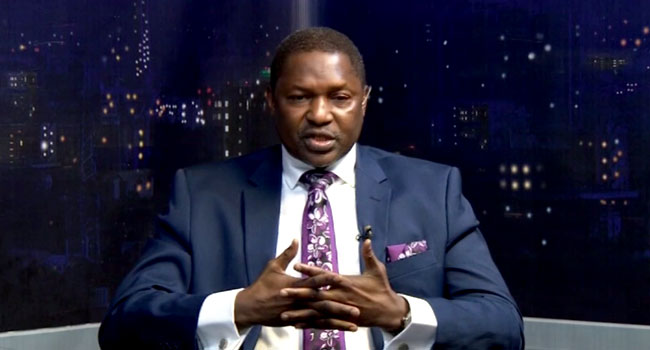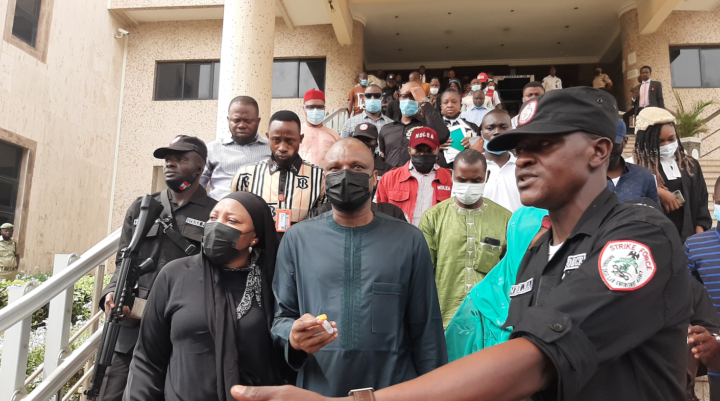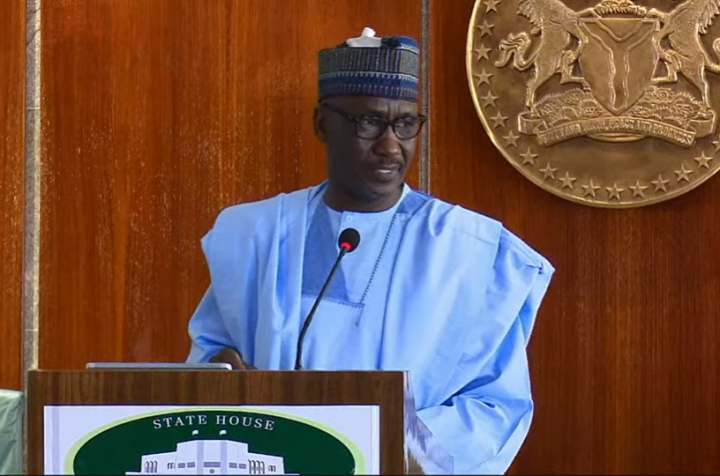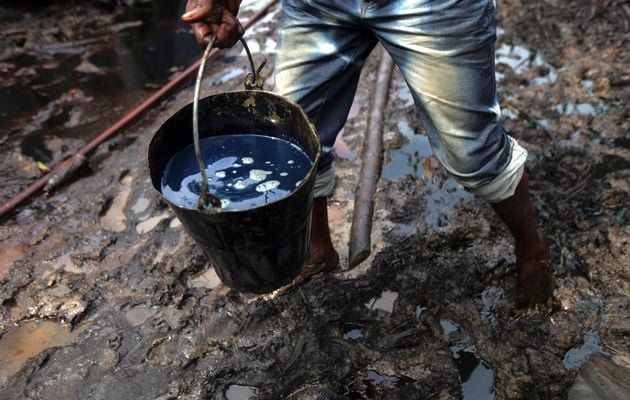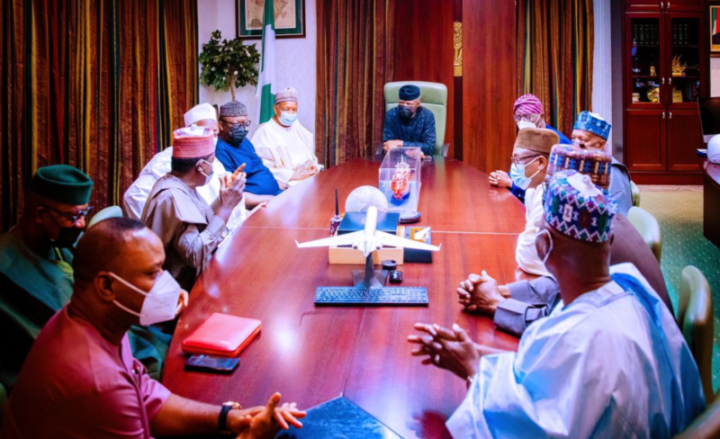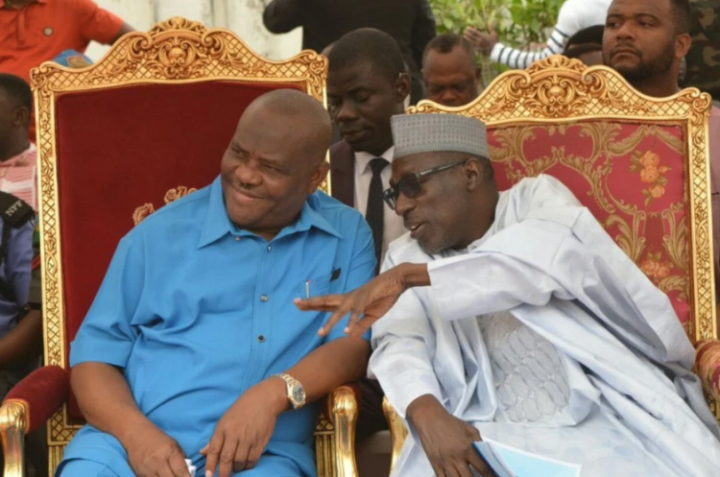On Monday, a federal high court in Abuja dismissed the case of the federal government which sought to extradite Abba Kyari, suspended deputy commissioner of police, to the United States for criminal prosecution.
The court, in its judgment, attributed the failure of the case to the negligence of Abubakar Malami, attorney-general of the federation (AGF).
Inyang Ekwo, the presiding judge, said as the chief law officer of the federation, Malami ought to have known that the application was bound to fail since Kyari is already standing trial on criminal charges, on another matter, before a competent court in Nigeria.
BACKGROUND
Advertisement
Kyari is wanted in the US over alleged conspiracy to commit wire fraud, money laundering and identity theft.
A grand jury had, on April 29, 2021, filed an indictment against him with the approval of the US district court for the Central District of California, after which a warrant was issued for his arrest.
The Federal Bureau of Investigation (FBI) had also revealed how Kyari allegedly collaborated with Hushpuppi to jail one of his associates after a dispute over a $1.1 million scam on Qatari businesspeople.
Advertisement
On August 26, Usman Baba, inspector-general of police (IGP), received the report of the panel set up to probe the allegations against Kyari.
The police thereafter sent the report to Malami for legal advice.
In his advice, Malami said there was a prima facie case of money laundering and that further investigations should be conducted into the matter.
However, in a February 4, 2022 letter issued through Mohammed Abubakar, director of public prosecutions, ministry of justice, and addressed to the IGP, the AGF said there is no sufficient proof that Kyari was involved in money laundering.
Advertisement
ENTER THE NDLEA ANGLE
While Nigerians were still mulling over the conspiracy allegation between Kyari and Hushpuppi, the NDLEA on February 14 declared the controversial ‘supercop’ wanted for drug trafficking “over his involvement in a 25kg cocaine deal”.
Hours later, the police announced his arrest and subsequent transfer to the custody of the NDLEA.
On February 28, the anti-drug agency filed an eight-count charge against Kyari and six others.
Advertisement
Shortly after, Malami proceeded to file the application for his extradition to the US on March 1.
Explaining the reason for the delay, Malami had said that the process of extradition is cumbersome and multifaceted.
Advertisement
But in dismissing the suit, the presiding judge held that the AGF filed the application in bad faith.
“I find that this application was brought in bad faith,” the judge said.
Advertisement
‘MALAMI OUGHT NOT TO HAVE BROUGHT THE APPLICATION’
As the chief law officer of the federation, Malami has legal powers to institute and undertake, take over and continue or discontinue any criminal proceedings at any time before judgement as provided for in Section 174(1)(a)(b)(c) of the 1999 constitution as amended.
Advertisement
The AGF can be said to perform oversight functions over the police, EFCC, ICPC, and NDLEA in the sense that the justice ministry is aware of every criminal charge filed.
The presiding judge noted this when he said: “The applicant, being the attorney-general of the federation, is in a position to know that Mr Kyari is standing trial on offences bordering on the provisions of the NDLEA Act, and ought not to have brought this (extradition) application.”
The court questioned why the AGF requested extradition since he had also given the NDLEA a fiat to bring charges relating to drug trafficking against Kyari.
Kyari had among other things, in a counter-affidavit in opposition to the suit, insisted that he could not be extradited because of the pending drug trafficking charge.
However, Malami had noted that the extradition suit could proceed since the offences Kyari was facing in Nigeria are not the same as that for which he is wanted in the US.
But in its judgment, the court held that the application is in breach of Section 3 (f) of the Extradition Act, and that it is incompetent.
“The AGF could not say that he was not aware of the pending proceeding against the defendant which was entered against him(Kyari) by the NDLEA,” the judge said.
Add a comment
